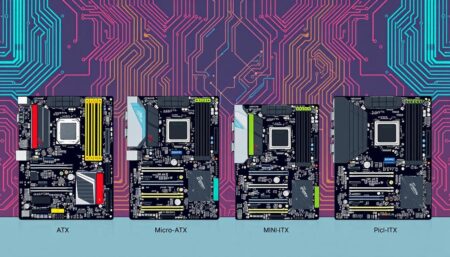When it comes to computer peripherals, one of the most common choices people face is between a wireless mouse and a wired mouse. Each type has its advantages and disadvantages, and the choice depends on personal preferences and specific needs. In this article, we will discuss the differences between wireless and wired mice, the pros and cons of each type, and how to choose the right one for you.
Perplexity, Burstiness, and Complexity in Writing
Before diving into the differences between wireless and wired mice, it’s important to consider the factors that make writing effective. Perplexity measures the intricacy of the text, while burstiness evaluates the variability between sentences. Both factors are essential for creating content that is engaging, informative, and easy to read.
Choosing the Right Mouse: Factors to Consider
The first step in choosing a mouse is to consider your needs. Are you a gamer, a graphic designer, or a casual user? Do you need a mouse for work or leisure? Once you have identified your needs, you can consider the following factors:
- Ergonomics: Comfort is a crucial factor when choosing a mouse. Ergonomic design can reduce the risk of hand fatigue and repetitive strain injuries.
- Performance: A mouse’s performance is determined by its DPI (dots per inch), which refers to how sensitive the mouse is to movement. Higher DPI means more sensitivity and precision.
- Connectivity: Wired mice connect via USB ports, while wireless mice can use Bluetooth or a USB receiver. Consider the range and stability of the connection.
- Battery life: Wireless mice require batteries, so it’s important to consider the battery life and whether the mouse is rechargeable.
- Cost: Wireless mice are generally more expensive than wired mice, but the price can vary depending on the brand and features.
Wireless Mice: Pros and Cons
Wireless mice have become increasingly popular in recent years due to their convenience and flexibility. However, they also have some disadvantages to consider.
Pros:
- Convenience: Wireless mice are portable and easy to use, especially for laptops.
- Aesthetics: Wireless mice come in various colors and designs, adding a touch of style to your setup.
- Clutter-free: No cables mean fewer tangles and less mess on your desk.
Cons:
- Battery life: Wireless mice require batteries, which can be inconvenient and costly.
- Connectivity issues: Wireless mice can experience interference from other devices, leading to connection problems.
- Latency: Wireless mice may have latency issues, resulting in delays between movement and response.
Wired Mice: Pros and Cons
Wired mice have been around for decades and remain popular due to their reliability and low cost. However, they also have some drawbacks to consider.
Pros:
- Reliability: Wired mice are generally more stable and responsive than wireless mice.
- Cost: Wired mice are often less expensive than wireless mice.
- No battery needed: Wired mice do not require batteries, so you don’t have to worry about replacing them.
Cons:
- Cable clutter: Wired mice have cables, which can be messy and limit your movement.
- Limited portability: Wired mice are less portable than wireless
